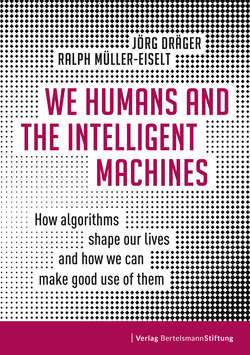Читать книгу We Humans and the Intelligent Machines - Jörg Dräger - Страница 17
На сайте Литреса книга снята с продажи.
Inconsistency: Rating the same things differently
ОглавлениеTwo lawyers, three opinions – Germans use this aphorism to bemoan the inconsistency of legal judgments. Yet lawyers are not the only ones known for judging the same facts differently. Contradictory viewpoints are human and part of everyday life among physicians as well. This is why many patients with serious illnesses often seek a second opinion before agreeing to treatment. This does not necessarily reflect a lack of confidence in the medical profession. It more likely attests to a healthy gut instinct which senses that even experts can disagree with a colleague’s opinion and make a mistake.
A test by the Boston radiologist Hani Abujudeh shows how justified this gut feeling is. In 2010, he invited three of his colleagues at Massachusetts General Hospital, specialists in abdominal and pelvic conditions, to participate in an experiment. Abujudeh gave each of them CT scans of 60 old medical cases, which he had randomly selected from the hospital’s database. What the three doctors did not know was, first, what diagnosis had originally been made and, second, that in half of the cases they had made it themselves. Abujudeh asked his colleagues to examine the scans again, before he compared the new with the original findings. The result: In one instance in four, the radiologists deviated considerably from their own past diagnosis. And when looking at scans that had previously been evaluated by someone else, the doctors came to a different conclusion one-third of the time.10
Just so no wrong conclusions are reached: These findings do not mean that incorrect diagnoses or improper treatment are widespread. After all, hospitals have put detailed procedures in place to make up for humans’ limited abilities. In difficult cases, for example, a radiologist never decides alone. Second opinions are often required, the progression of the disease is interpreted in light of laboratory results, in cases of doubt interdisciplinary councils are asked to provide an opinion. The variance in clinical findings in everyday settings is therefore considerably lower than in Abujudeh’s experiment; it is more likely to be between 3 and 4 percent than between 25 and 30 percent.11
There is no doubt, however, that people evaluate the same things differently. Even recognized experts have to include complex feedback loops in their decision-making processes if they want to minimize outlying assessments. This is not only true when the same thing is examined by different experts; even the same person often assesses the same facts differently at different times.
This is hardly a phenomenon unique to the world of medicine. In another study, seven experienced software developers assessed the workload for new projects completely differently. They had to supply estimates for the same 60 projects, and their forecasts of the required working days differed by 71 percent on average.12 Supervisors assess the performance of employees in similarly inconsistent fashion, as do financial experts the value of stocks and real estate.13 Inconsistency makes decisions unpredictable and erroneous. It can result from very different causes, such as fatigue, stress or a person’s recent experiences. Even though it is rarely possible to determine the specific reason in individual cases, it is clear that people tend to behave inconsistently. New software-supported tools, however, could help reduce the impact such inconsistency has in important areas of life.
